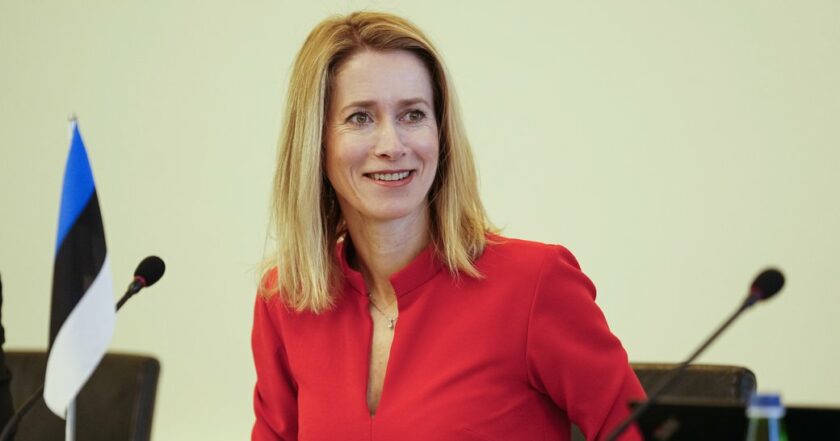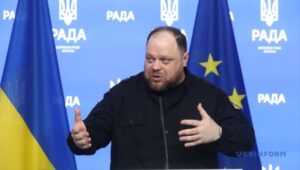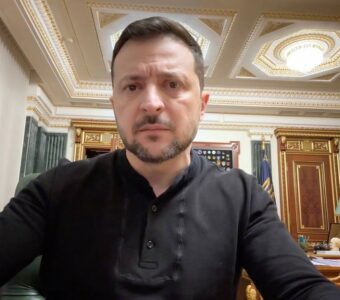Estonian PM demands transfer of frozen Russian assets to benefit Ukraine

Фото: AP
Estonian Prime Minister Kaja Kallas stated the need to use frozen Russian assets for the benefit of Ukraine, in particular, to rebuild infrastructure damaged and destroyed as a result of the war.
Kaja Kallas wrote about this on the X social network (formerly Twitter).
"We need to press ahead with using Russia's frozen assets for Ukraine. Glad my calls are being met with steps forward not only within the EU but also among the G7, including the U.S. Congress and the UK. Prominent legal and economic scholars have endorsed the idea," the post of the head of the Estonian government reads.
Kallas also noted that this use of the frozen assets of the Russian Federation would be "not only morally, but also legally the right thing to do."
" It is an international legal norm that the aggressor must compensate for damages.
Using Russia's frozen assets helps Ukraine's reconstruction and recovery – and they need support now," Kallas wrote.
The head of the Estonian government stressed that the EU should demonstrate "political leadership" on this issue.
"I look forward to discussing next steps with EU leaders this week at the EU summit," Kallas said.
It should be noted that Ukraine's partners are hurrying to agree on a plan to confiscate 300 billion dollars of frozen Russian assets. So far, the US has asked G7 working groups to explore ways to do this.
For reference:
From 2022 to 2023, and as of the beginning of August, the Security Service of Ukraine seized the assets of Russian business people financing the war, worth almost 190 billion hryvnias.
In addition, the assets of Russian oligarchs are being seized abroad:
- Great Britain has frozen more than 18 billion pounds ($23 billion) of assets and imposed sanctions against more than 1,550 Russians since the Russian Federation's full-scale invasion of Ukraine and as of mid-June this year.
- In the Czech Republic, the assets of Russian oligarch Volodymyr Yevtushenkov, who is close to Russian President Vladimir Putin, were frozen.
- Poland also offered to give the frozen assets of the Russian Federation to Ukraine and EU countries.
- In Germany, blocking Russian assets worth more than 4 billion euros was possible.
- The EU is studying the procedure for the confiscation of 200 billion euros of frozen assets of the Russian Central Bank. The European Commission is also developing its proposals.
- Belgium created a special fund to support Ukraine in the amount of 1.7 billion euros, filled with taxes on Russian assets frozen in the country.
- In July, Italy announced that it had frozen the assets of Russian oligarchs worth about 2 billion euros after the Russian Federation invaded Ukraine last year.
- European Union ambassadors agreed on January 29 to use the profits from frozen Russian assets to help Ukraine.


















































